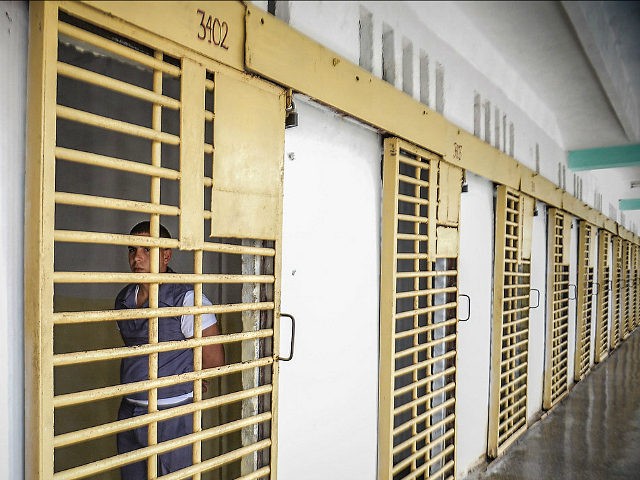The communist regime of Cuba has committed a documented 2,559 politically motivated arrests in the first half of 2017, according to the Cuban Observatory for Human Rights (OCDH), an NGO that tracks and documents repressive police action on the island.
The OCDH press release notes that this number is “significantly less than during the same period in 2016,” when President Barack Obama landed in Havana to meet and enjoy the capital with dictator Raúl Castro. NGOs had documented 6,075 politically-motivated arrests in Cuba between January and May 2016, largely driven by the president’s visit.
In March, the month in which President Obama landed in Cuba, state police conducted 1,416 arrests of pro-democracy dissidents. 498 of those arrests occurred while President Obama was physically present in Cuba.
Nonetheless, the high number of arrests “remains a scandal, and the repression levels remain the same or worse,” the group notes, adding, “the diminishing of the number of detentions, we interpret, is not due to any positive changes whatsoever in the political will of the Cuban government, but to a change in its repressive mechanisms.”
The group lists among the new mechanisms used to abuse and repress political dissidents “direct aggression against the children and family of activists, confiscation or theft of personal goods or modes of employment from civil society groups, the fabrication of penal violations to intimidate or jail opposition members, the prohibition or physical impeding of activists from leaving their own house,” and “preventing activists from leaving the country after being invited to international forums.”
Among the most prominent cases in the latter category was the prevention of Ladies in White leader Berta Soler from traveling to the United States after being invited to attend President Donald Trump’s speech announcing reforms to Obama’s “normalization” Cuba policy.
The White House invited Soler, along with a number of prominent Cuban dissidents, to attend the event in Miami in which the president announced policies to prevent the Cuban government from profitting from tourism or illicit business with Americans. Soler joined another 65 activists, OCDH counted, that were also prevented from leaving the country for advocacy reasons in June.
Soler was arrested this weekend once again for organizing a peaceful march to the Santa Rita Church in Havana, where the dissident group has celebrated Sunday Mass since the Black Spring of 2003. The Cuban regime, in conjunction with the Vatican, has prevented the group from worshipping at their church in recent weeks, despite having allowed them to attend services for years.
The OCDH count cites 410 politically motivated arrests documented in the month of June, with more of those arrests being of women than men, and 138 of those arrested being of Afro-Cuban descent.
Another NGO dedicated to monitoring oppressive state behavior on the island, the Cuban Commission for Human Rights and National Reconciliation (CCDHRN), revealed similar arrest numbers this week. The CCDHRN documented “at least 380 arbitrary detentions” during the month of June, a number they called “slightly higher to the number registered in May.”
The group issued a similar warning to the OCDH, noting, “in the past few months, the Castro regime has made very visible efforts to avoid detaining opposition members and, especially, imposing prison sentences, to avoid the criticisms of international public opinion.” Instead, the Cuban government has increased the number of physical and verbal attacks on family members of dissidents and trapped dissidents in their homes, so as to not need to document such detention as an “arrest.”
This echoes the statements by the OCDH, which noted, “The Cuban totalitarian regime knows very well, through its own experience and those of others, like the Nazi-fascist regimes of Europe, that physical aggression against peaceful dissidents has an immediate, dissuasive, and almost paralyzing effect on both the direct victims and those within their society.”
The CCDHRN has documented 2,620 arrests this year.
In May, the NGO reported that the Cuban government had doubled its number of political prisoners. While most arbitrary detentions result in beatings, torture, and quick release—only for the same dissidents to face the same arrests often in the same week—political prisoners are those kept in the nation’s prisons in the long-term, many of them on fabricated charges for crimes such as “desacato,” or contempt for the Revolution. The group has documented the existence of at least 140 cases of prisoners of conscience in Cuba.

COMMENTS
Please let us know if you're having issues with commenting.